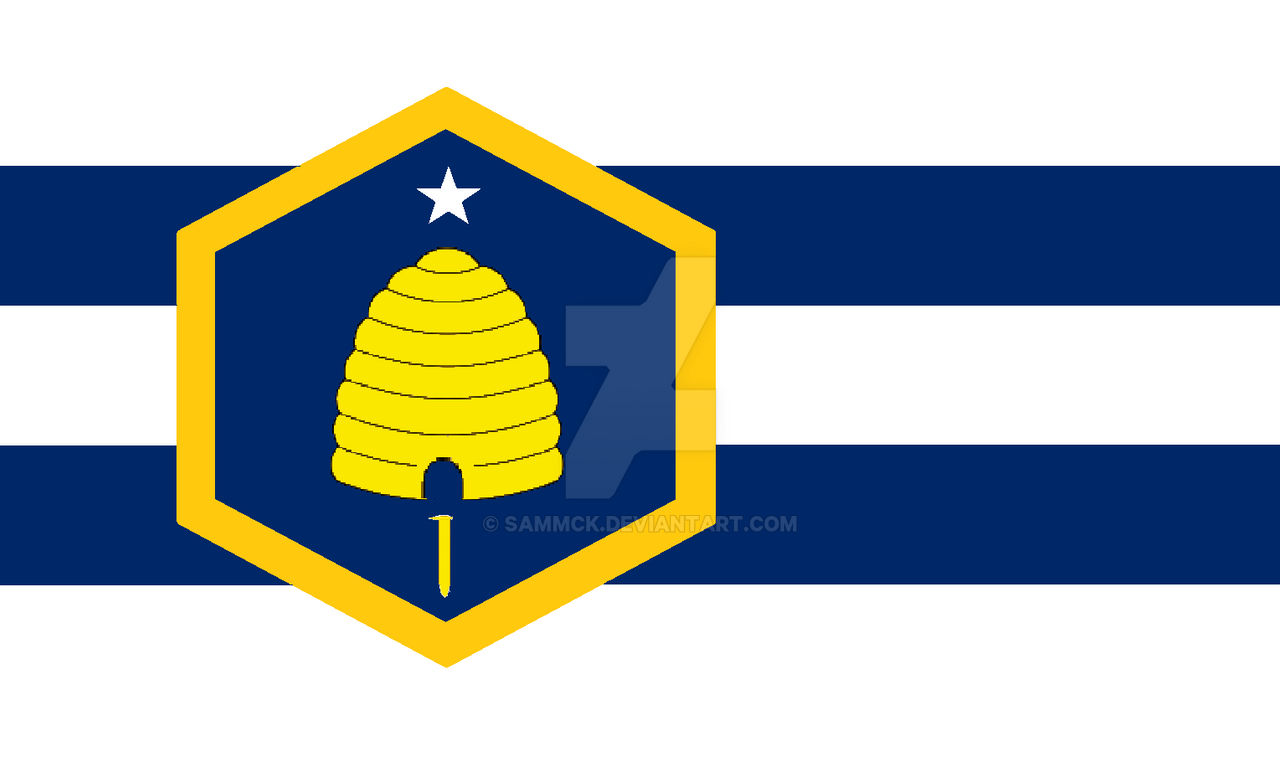This is a post I that I have been waiting a year or so to write. The American State of Utah is currently in the processes of replacing their current flag wit something more befitting the state rather tan the state seal on a blue field. I submitted a proposal which I would like to share. I waited until the finalists were chosen encase sharing it would unfairly promote my design above the others or compromise its integrity. However now that the finalists are chosen (unfortunately but unsurprisingly given the amount of proposals my design is not among them) I think I can safely share it without fear of unduly effecting the process.
My design is I believe in keeping with the five NAVA design
principles. Its simple but meaningful. It uses no more than three colours and
it relatable (and I hope distinctive) with no lettering or seals.
The blue and white bars reflect the blue and white stripes
on many of the flags used by the Mormon Pioneers and the State of Deseret. The
layout of the bars is designed to resemble ruts made by wagon wheels and rail
lines. This represents both the pioneers who came to and crossed Utah in wagon trains and those who came during the construction and after the completion of
the transcontinental railroad. The three white bars represent the three
distinct geological regions that converge in Utah: The Rocky Mountains, the
Great Basin and the Colorado Plateau. I hope that in this way all the natural
diversity of the state ranging from sand dunes, pine forests and mountain
valleys are represented and that this might also reflect on the diversity of
the people.
The barry field is charged with a double hexagon. This is
off centre towards the hoist so that it may be visible and recognisable both
when the flag is flying and when it is at rest (no wind), both from a vertical
flagpole and an outrigger. The central symbol is the beehive, which is an
iconic symbol unique to Utah (at least in the United States) with historical
and symbolic significance. It has been the principal symbol on every Utah flag
since 1911.
The star above the hive represents Utah’s statehood in the
United States of America, whereas the spike below the hive is symbolic of the
golden spike that joined the tracks of the Central and Union Pacific RR
companies. This made Utah the place where the east coast met the west coast and
thus is symbolic of the linchpin in Utah that via the transport infrastructure
holds the nation (and arguably by extension the world) and its economy
together.
The hexagons are reflective of the honeycomb found in
beehives thus reinforcing the symbolism of the beehive. The outer hexagon
represents the six other states that touch Utah’s boundaries. Wyoming, Idaho,
Nevada and the other three states that meet at the four corners: Colorado,
Arizona and New Mexico. Thus, representing Utah’s unique geographical position.
Last but by no means least the inner hexagon represents the six Native American
peoples that live in Utah: Shoshone, Goshute, Navajo, Paiute, Northern Utes,
and White Mesa Utes.
